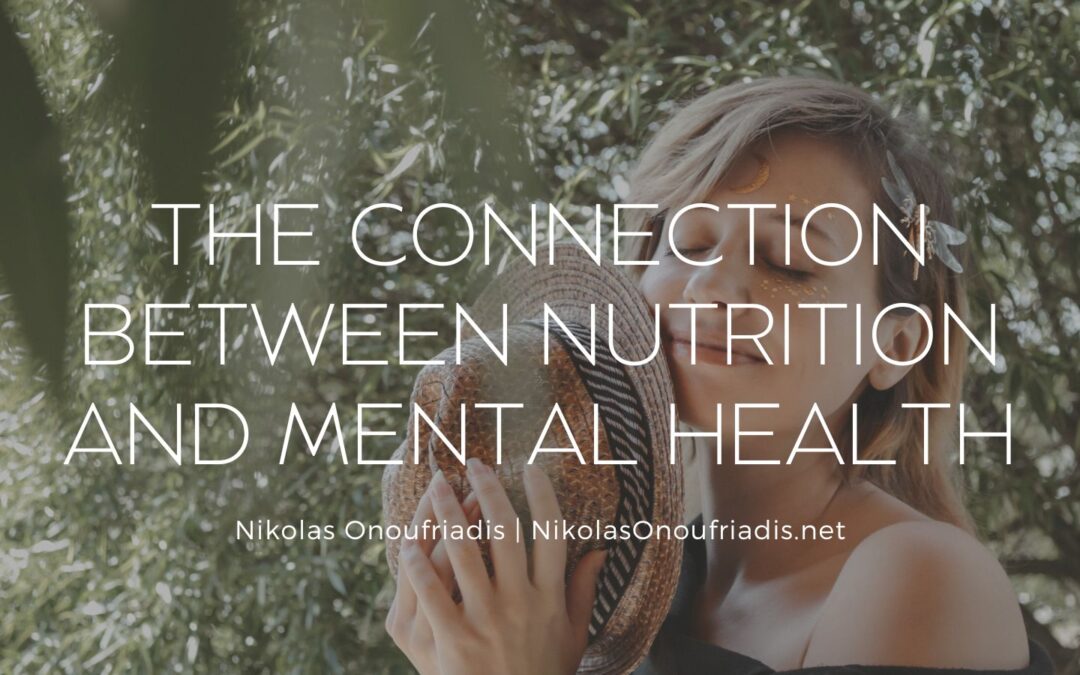Nutrition plays a critical role in maintaining our physical health but may also significantly impact our mental health. Research has shown a strong connection between nutrition and mental health and that our diet can profoundly affect our mood, cognitive function, and overall mental well-being. Our physical and mental health may suffer in a variety of ways if we don’t eat a healthy diet. Here are a few instances:
Obesity, diabetes, and heart disease are just a few of the chronic health problems that a bad diet might make you more likely to develop. A diet heavy in sugar, saturated fats, and processed foods may cause weight gain, high blood sugar, and raised cholesterol levels, all of which can hasten the onset of chronic medical conditions.
Impaired Cognitive Function: A bad diet may also affect one’s ability to concentrate, pay attention, and solve problems. A diet rich in refined carbohydrates and saturated fats may cause the brain to become inflamed, impairing cognitive function and raising the possibility of cognitive decline later in life.
Mood Shifts: A person’s diet may also impact their mental health. Blood sugar changes brought on by a diet heavy in processed foods and sugar might result in mood swings and irritation. A bad diet may also result in vitamin shortages, which can exacerbate symptoms of anxiety and sadness.
Immune System Weakness: People with weak immune systems are more prone to infections and diseases. This is due to inadequate food. Nutrient shortages that might affect immune function can result from eating a diet low in fruits, vegetables, and other nutrient-dense foods.
Dietary habits might also have an impact on sleep quality. Consuming a diet heavy in sugar and caffeine may interfere with sleep cycles, resulting in unsatisfactory sleep and a higher risk of sleep disorders including insomnia.
- Nutrient Deficiencies and Mental Health
A lack of certain nutrients, such as vitamin D or omega-3 fatty acids, increases depression, anxiety, and other mental health conditions. Inadequate intake of these nutrients may impact the production of neurotransmitters, chemicals in the brain that regulate mood and behavior.
- Gut Health and Mental Health
A growing body of research suggests a connection between gut and mental health. The stomach is home to trillions of bacteria that play a critical role in our overall health, including our mental health. An imbalance in gut bacteria, known as dysbiosis, also contributes to depression, anxiety, and other mental health issues.
- Inflammation and Mental Health
Inflammation is a natural response when the body is under stress or fighting off an infection. A diet high in processed foods, sugar, and unhealthy fats can contribute to chronic inflammation.
- Blood Sugar and Mental Health
Blood sugar levels can also impact our mental health. Fluctuations in blood sugar can lead to mood swings, irritability, and fatigue. A diet high in refined carbs, like white bread and sugary drinks, can lead to rapid spikes and drops in blood sugar levels.
- The Benefits of a Healthy Diet for Mental Health
Eating a healthy diet that includes a variety of whole foods, such as fruits, vegetables, whole grains, and lean proteins, can have numerous benefits for mental health. A healthy diet can help to reduce inflammation, support gut health, and provide the nutrients needed for optimal brain function.
there is a strong connection between nutrition and mental health. By focusing on a healthy diet that includes a variety of nutritious foods, we can support our mental well-being and reduce the risk of mental health conditions. If you’re struggling with mental health concerns, seeking professional help and making dietary changes is essential.

